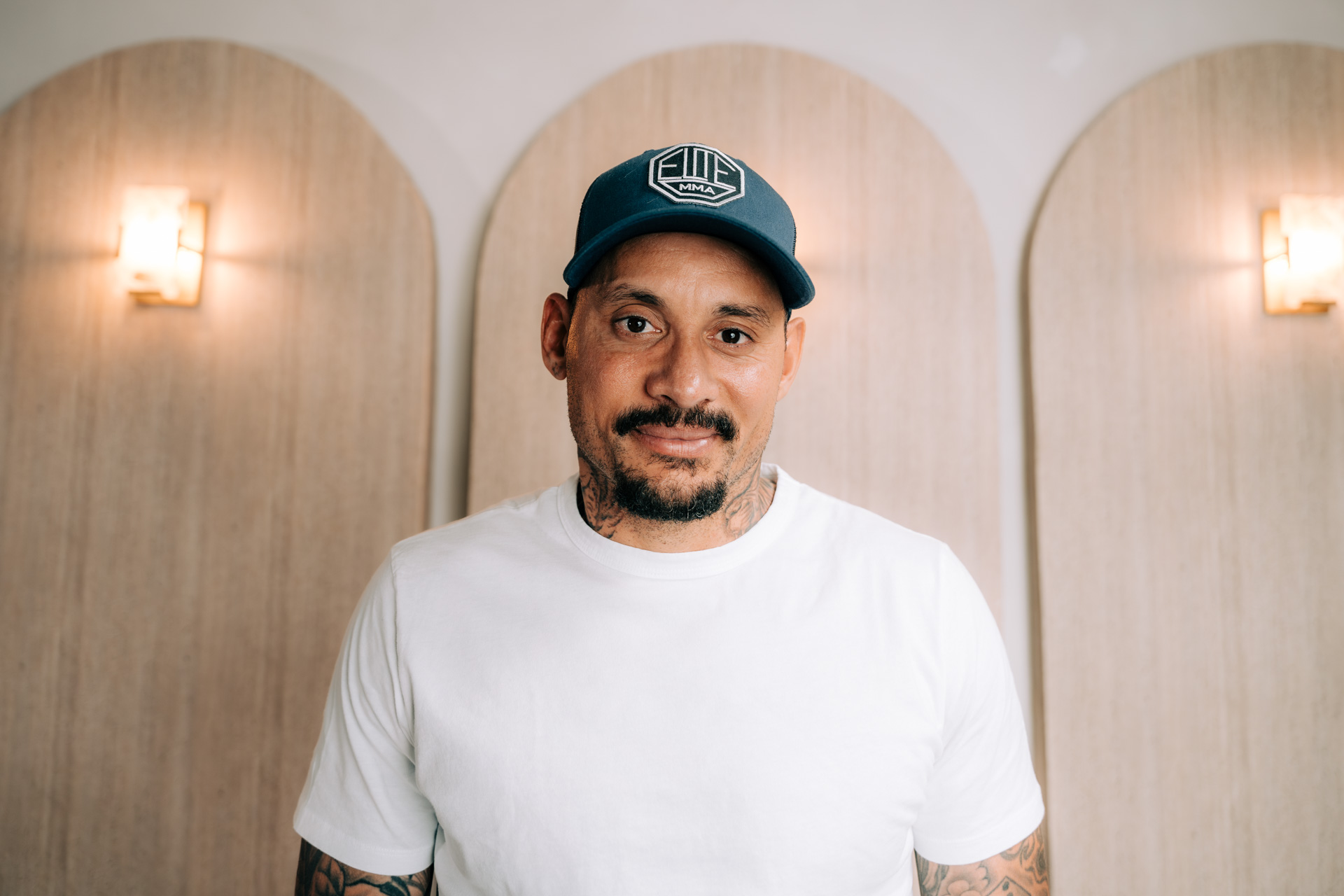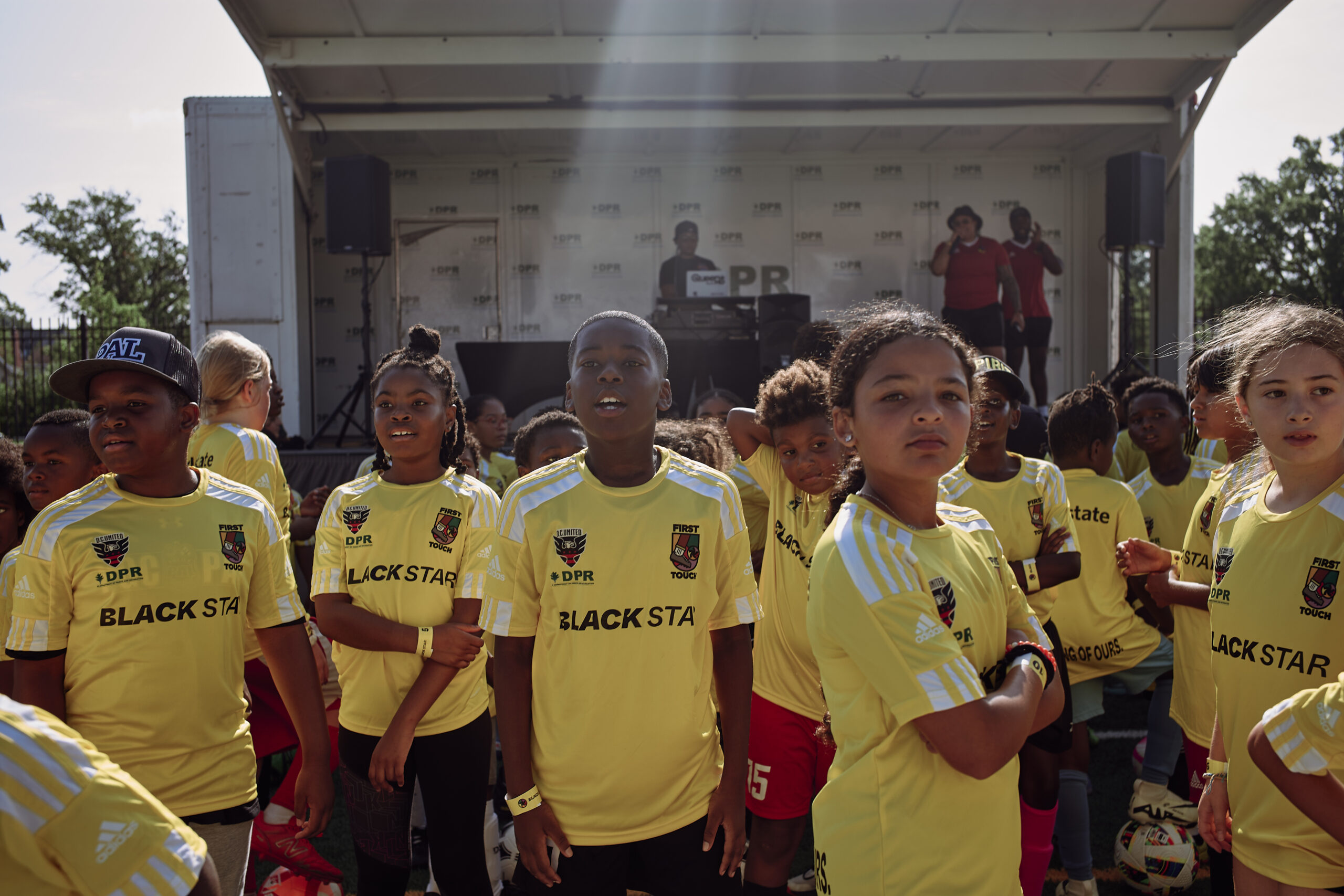Jermaine Jones is a trailblazer, the first to launch a movement for the United States Men’s National Team, one that saw foreign-born Americans don the red, white, and blue and represent the stars and stripes on their chest, one that influenced the make-up of this generation’s first-team.
But his journey was also one full of scrutiny, a perceived “bad boy” image followed him throughout his career, and his well-documented criticisms of the U.S. Soccer system didn’t make him any friends in certain circles.
One thing about Jermaine that can’t be denied, is that he’s always going to keep it 100. Maybe it’s his German upbringing that makes him so direct, but regardless of his delivery, he always speaks from a place of good, even when the message isn’t what some want to hear in the moment.
After 18 years on the pitch as a player, Jermaine has embarked on a new journey, this time from the touchline as a coach. He believes the talent here in the states is unmatched, but underdeveloped, which is why he’s on a mission to do something about it. With a completely new mindset and approach, he’s ready to change the game again.
Rich Gordon sat down with Jermaine to talk about the moments that shaped the man that we see today.
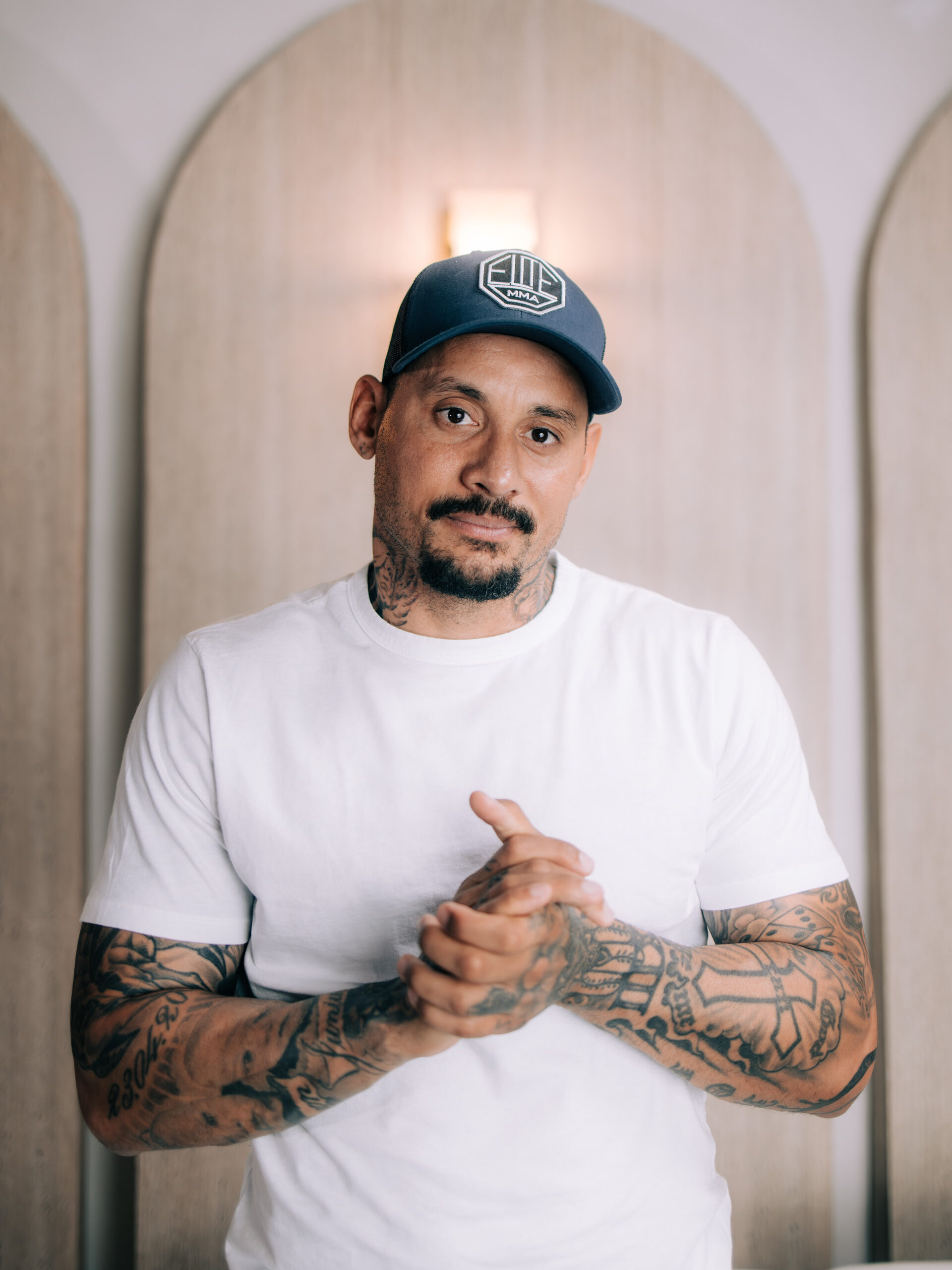
Forty-One: When did you fall in love with Soccer?
Jermaine Jones: I fell in love with football, I think I was around the age of five, six. That was the first time back in Germany, where I was born and raised, just playing outside. I think the game was around you. You always saw it. You have always been in touch with it.
People were always like, oh, he’s fast, playing outside on the playground. I just tried it out and a saw like, Oh, I like that. That’s a nice game. Let’s, see how you know, how it goes, just you know, playing outside more and more and getting more feeling for it. And then that was just something where I was like, “Man, that’s my game. I’ll stick with that.”
Who were some of your influences growing up? What directed you to the sport?
I didn’t really have influences on the game or somebody I looked up to because at the time I was young and, you know, I think I saw it more as a like a community thing because everybody played the game in the neighborhood and we didn’t even really have goals or anything. It was benches where we created our own goals and ideas with trash cans and all that stuff. So there was no direct influence from somebody where I would say like, you know, somebody I looked up to. My dad was not in my life, who would be like, Oh, play that sport. So it was actually more so just the community you know, hanging out with your friends. I would say, the game itself instead of an individual really influenced me.
I remember back in the days when I got a little bit older, people were saying, okay, he has talent. We had guys, you know, street guys, they would play for money. They would pick the good players and they would be like, “You play for my team” because they had bets on the games. When I started playing with them, that was the first time where I felt like, “Oh, It’s about winning.” if you be cool, they’ll give you candies after and all that stuff, you know? But in the game itself, you know, I didn’t have an idol.
If you grew up in the Ghetto like me, you’re not really looking up to a man if it’s not your Dad. Where I grew up, gangbangers had influence because what they’re doing “looks cool” and they have money.
But then there was (Thierry) Henry, I looked at him and he looked like me.
I laughed about this with him when I played against him while he was with New York Red Bulls. I said, man, I have to tell you, I had a picture of you on my wall, you know? And he laughed because, we look at each other now, we’re adults. We played in Champions League.
Of course, he’s way bigger. And he’s an amazing player in the history of English soccer and France, and I told him that you know. So now for me looking back too, it was not the game itself, It was that I identified more with him as a person.
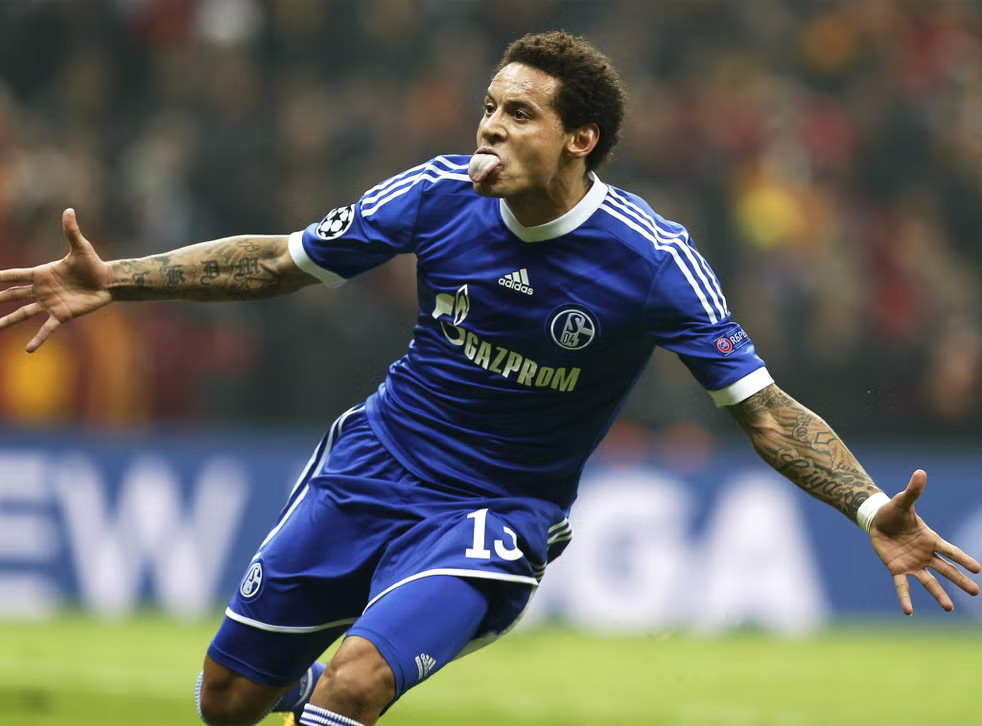
When you played, it always seemed like you were playing with a chip on your shoulder, where did that come from?
It goes back to the beginning, when I started becoming a professional player. I think it was age 19, 20, I started at 18, but around 19, 20, when I was a little bit more into the league, I was one of the players who started having tattoos. You know, I was young, but still had tattoos. I came from a different area so people started saying, “Oh, he’s the ghetto kid” and all that in my direction. I was the face for a lot of people, you know, the community who saw this kid, he made it. He’s in a professional league now. He’s like us.
And maybe I took that bad boy image into the league and started enjoying being the bad boy, even if it’s not hundred percent me. But I represented a lot of people who came from the same background as me, you know. So as I was out there year after year I just started, especially on the field, to really enjoy being the bad boy.
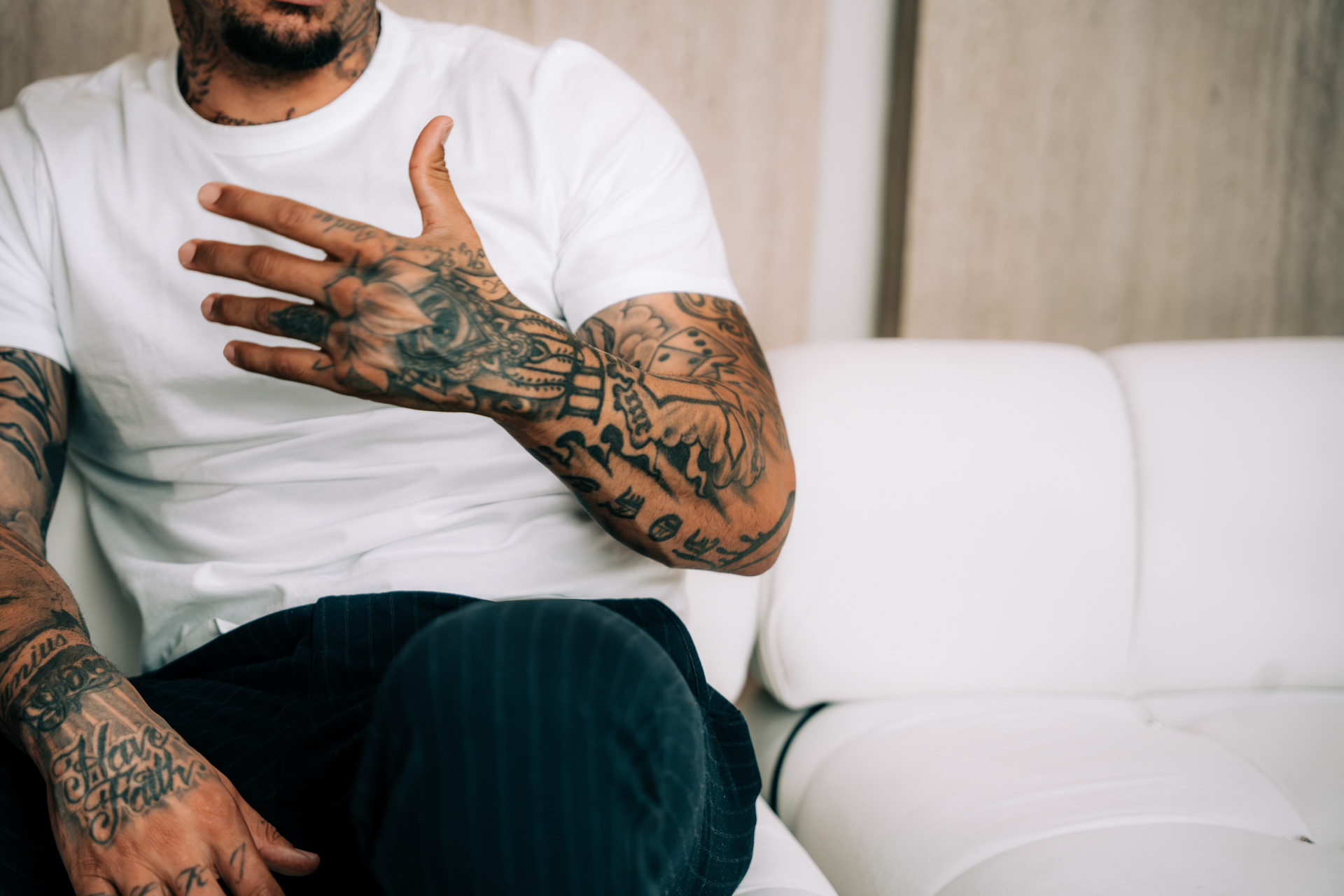
But that helped me to always push myself to the next level. So throughout my whole career, I always look back and say, I don’t have a problem with having the chip on my shoulder, to be the bad one, because at the end I played 18 years and it helped me to push myself to a limit.
But now I’m seeing things through the eyes of a coach. Then, you had a problem because most people don’t know who Jermaine Jones is. They only know the man I wanted to show them. So now, when I talk to people, I often say, it’s like you’re watching a movie where a guy plays the bad boy, it doesn’t mean he’s a bad person in real life.
It’s the same with players; whoever you see on the field may be there because he’s a winner; he despises losing. You don’t know his background; you don’t know what pushed him to become the player he is today. So don’t judge people by what you see on the field, because that’s maybe who that person wants you to see.
So you have to understand the person behind that and meet him in real life. I think that that’s where it started, back around, 19, 20 when they said “hey, he’s the bad boy, he’s the ghetto kid.” I embraced it and took it with me for my whole career.
How is Jermaine the player different from Jermaine the coach?
You know, there’s a big difference, to be honest, because if you look at me as a player, you will look at the games and say, man, this guy is a Savage, he hates losing, He would do everything to win a game. But like I said, for me, it was important as a player. Now, going into coaching, it’s not about me.
It’s about the guys I coach, you know, I put myself in the back. Everybody I coach I look at myself as more so as an update for them. They can be like, look at the experience he has and what he has been through, Now it’s for me to give back to them, to help them to go to the next point in their life.
So that’s the big difference for me. I always say when I step into the room to coach that there’s no Jermaine the player anymore, that guy is gone. Now I have a new chapter in my life where I can teach others and give back. Because I believe that coaching is something that I can look at and say, “That’s kind of my purpose,” and I really want to embrace that and help players get to the next level in their goals to achieve what they want to do.
So what really pushed you to say, you know what? that’s going to be the next thing for me?
You know, I would say I just love the game. I love the game so much. And when I had to retire, it was it was really the hardest time for me to go and put the shoes away. But then when you look at a different view of the whole game, I said let me check out coaching, because you’re still as close as possible to the game.
I like to do TV sometimes, I like to do that stuff and it’s fun. But if you spend your whole life on the field, and you did that from twice a day, every day of the week you feel like, man, that’s what I want to do. When I started doing all my coaching licenses, when I was looking into it, I felt that there’s still some fire, there’s some burning. And so I did all my licenses. And then I would talk with people I know who have connections in coaching and ask them, what is the next step?
And they said, oh, go out and observe, see how it goes, how you like it. I went to the fields, and I picked stuff up really quickly, and I understand the system because I’ve been in it and I played in it a long time, but I really enjoyed player management and that was something that I gravitated to.
The stuff on the field is easy, I can teach that, but how can I make him better as a person too, know his strengths, weaknesses as a person to lift him up and make him better. So it’s the player management part that brought the fire back for me where I’m like, man, I like coaching!
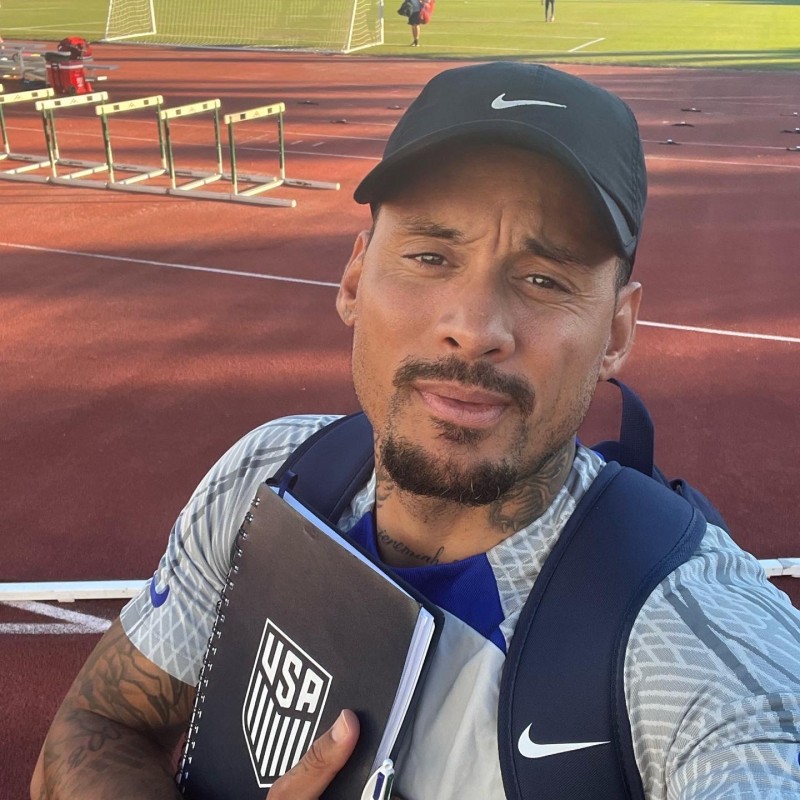
You have a UEFA PRO license, what was that journey like? Was It like going to school? like college? how was that experience getting that license.
Man doing that, like you said, was like going back to school, that’s the toughest part. Especially if you played for so long and then now you’re done and you’re like, man, what can I do next? And they’re like, you have to go get your license. And I was like…oof!
So I went for US soccer B license first and it was back going to class, you’re sitting in a classroom from seven in the morning to like five, six at night, and studying. It got tough for me but I’ve always been somebody that when people doubt me to get stuff done then I really put my hat down because like we talked about before with the chip on the shoulder, that was a challenge for me.
I was like, okay, how quick is it possible to get the license? And everybody’s like, Oh, it takes you a couple of years. And I said, okay, naw, I will get it done in three and a half years. Let me see. So then I start doing my US soccer B and I did my UEFA B, UEFA A, and then did my UEFA PRO and now have them all in almost three and a half years, you know, and now I’m qualified to go coach pros and everything.
So now it’s interesting, because I go to interviews and people ask, “so what license do you have?” and they all think i’m going to say UEFA B or UEFA A, you know, And then I’m like, “no, I have UEFA PRO” and they’re like, ”whoa, that quick?” That’s just something that at the end of the day, comes down to really hard work.
A lot of times people go and say, “Oh, you being a player, doesn’t mean you’ll become a coach, a good coach or whatever. But for me I always say they’re right, but the difference is if you have a player who is really focused on learning, going back to school, getting his license, adapting to the system, understanding his ideas of playing, style of play, all that stuff, then he has a bonus because I believe all this coaching stuff in the classroom, you can learn, but the 18 years of playing (experience) you will not learn. So I think that’s the bonus you have, but you have to accept the hard work that comes with it.
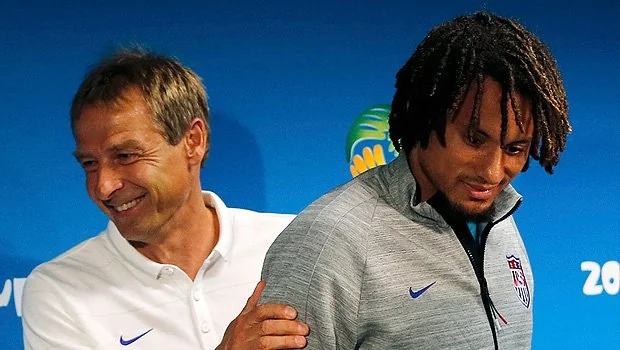
Are there any coaches that you look to and go, Oh, I can take little pieces from them?
Yeah. I think there are definitely some coaches out there. I’d say it’s more so now than it was when I was a player. I didn’t pay much attention to it as a player, but now that I’m a coach? yeah. We have Wyscout through US Soccer, which is a website where you can watch games. And I break down coaches, I’ll break down Jurgen Klopp, who I know personally, and then (Jurgen) Klinsmann, who I know because he coached me, we have Pep Guardiola, we have Simeone, there’s a couple guys I watch games of in different styles, and I analyze, okay, how he’s playing out from the back, how he’s pressing, how he’s playing in the 4-3-3, The other guys are in a 4-2-3-1 formation. So you just pick from it, and then you put it all in the basket and try to make your own version out of it.
Having developed in Germany what are some things from your experience there that you apply to your coaching methods?
I think the experience I bring is knowing the ideas and the different philosophies, because both countries have different strengths. German players strengths are that they are really disciplined, really structured. American players have athleticism, strength, etc. So I combine that knowledge to figure out what works the best.
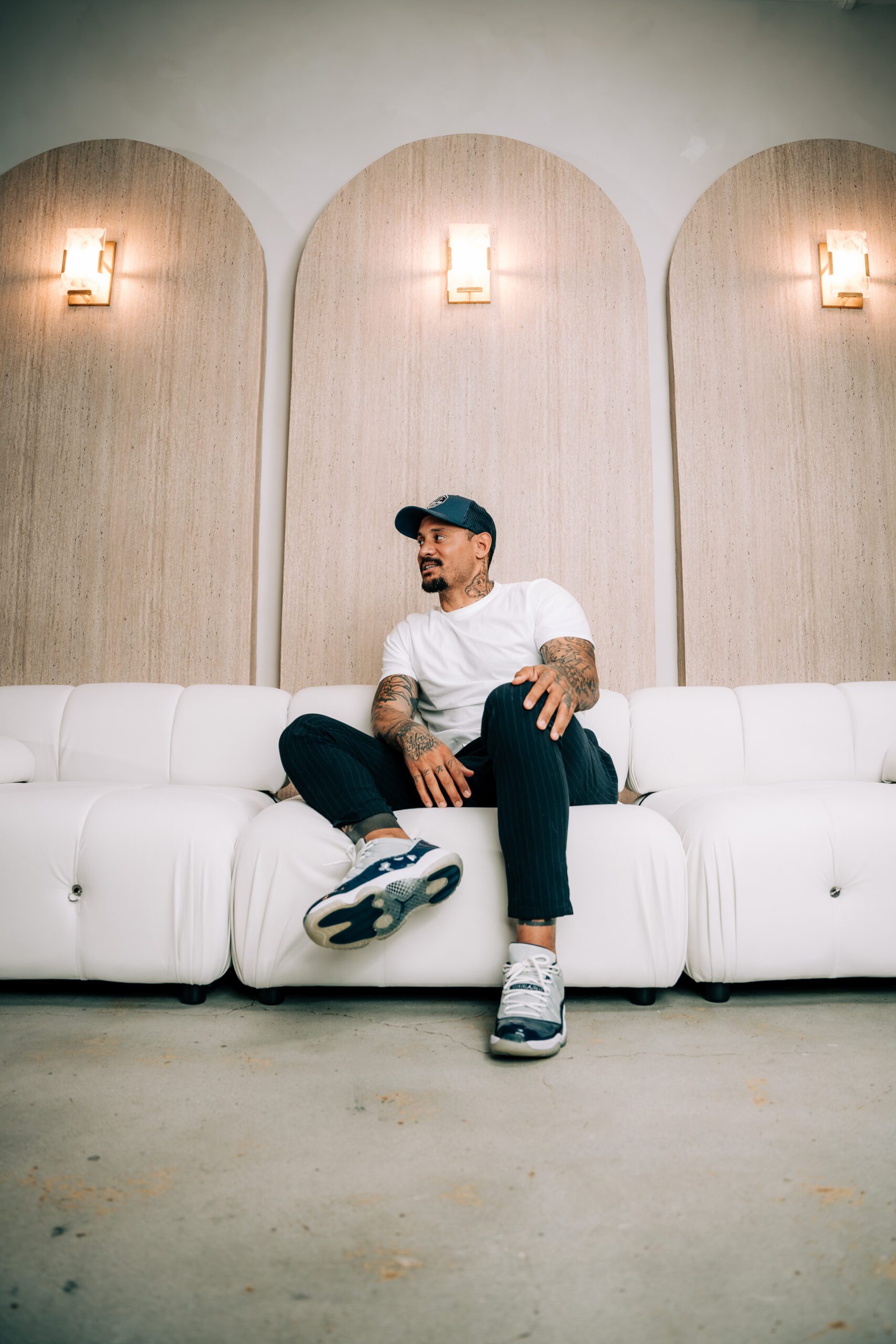
You’ve been outspoken about the state of soccer in the US, now that you’re coaching within US Soccer, How do your see yourself impacting the next generation of American players?
Working with the U19s, I always say, “We have one of the strongest academies, especially within the national team’s youth systems.” I don’t see many national team youth system programs that can compete with the US, but there is always the next step (into the senior team), which has to be similar to what it is in the youth systems.
If you look at Europe, there’s a lot of ex players in the system giving back. That’s something I think is important on the U.S. side too, that that we involve ex-players because you see a lot of ex-players go into TV, instead of coaching.
So if we can adapt and bring ex-players into the system to help develop the next generation, then I think it’s powerful and that’s my goal now with the U19s. I’m looking to maybe go coach on my own somewhere else. I want to give back, and share all the stuff I learned over my 18 years playing. I have ideas about what you can do in the development phase to get the next generation into the first team.
You were in the early class of Foreign-born USMNT players, now that’s a key building block/strategy for the current USMNT team rosters. How does it feel to have inspired a generation of European-Born Americans to play for the USA?
Many people don’t know why (chose to play for USMNT) because I never really talk about my personal life, but it’s because I grew up without a father and he was gone for such a long time. I believe I tried before 2010 when I had the opportunity in the youth system. I tried three times to play for the United States but was turned down because I didn’t have an American passport and had previously played in the German national team’s youth system. I was blocked because I played in the World Cup in Argentina when I was in the U20s.
Then in 2010, they changed the rule. They said if you just played youth national team and friendlies for the first team, you will be able to make one switch. So then I reached out to my agent. I said, “Man, I want to I want to see if I can switch.” So he looked into it and he came back and he says, Yes, you can, and you will actually be the first one to switch countries.
I said to him, “I want to switch because I’m not in touch with my dad.” And maybe through playing for the country it will help me, maybe he will see me playing and he’s like, “Wait, Jermaine Jones, That’s my son.” So that was the reason.
Then Bob Bradley came out, We had a good conversation. He told me “Hey, I want you to come and play.” I tried to look at the bigger picture, and I said to my agent, Look, I played Champions League already. I play Bundesliga. I’m here. I’m doing everything in Europe. If I can play for this country, I can be a part of helping, develop the next generation.
If you look at our national team now, everybody plays overseas. At the time I was one of maybe two or three. I was one of the guys who played Champions League. Now we have guys playing Champions League on a regular basis.
What are your thoughts on the current generation of the USMNT?
When I look at the current national team, it proves to you again that not only do we have so much talent outside of the country but inside too.
You have many different cultures playing together with each other. Some grew up in England, others in Germany, and others in America. Being able to bring them all together into one team, I believe, speaks volumes for both the coach and the players.
Having been around them, I can see that they have good chemistry. Everybody loves the game, So you don’t really need to talk a lot. Also their youth, we were the second youngest at the World Cup.
And now they’re bringing in a kid like Benja (Cremaschi) from Inter Miami FC who’s again, really young. We have so many pieces, you know, at the end of the day we can be thankful to have all those pieces.
As a coach, I would love to work with this group and figure this out. With these young men we may be able to create something amazing for the ’26 World Cup here at home.
What type of legacy would you like to leave when it’s all said and done?
For me, legacy is something I don’t really focus on as much because at the end of the day, what I want to achieve is, through what the people I work with and the people I coached. I can look back in a couple of years and I can look at the TV and say, “man, he became a good husband, a good dad, a good guy, and I was involved with that from a young age.” That’s legacy for me. I don’t care about the game stuff, to be honest.
I care way more about creating something amazing that is not really directly connected to me, but something where I’m helping kids and other people. Helping to develop the game here in this country, helping give kids a chance to create their own journey in life whether they go pro or not, but they become good men, good guys in life.
I hope that after all the hard work I did with the coaching licenses that the trust comes and that somebody says, “you know what? I’ll give him a chance to coach.”
I’ll get my head coach position and the opportunity to show people the impact that I can have.

